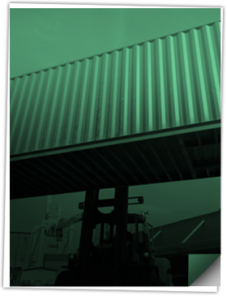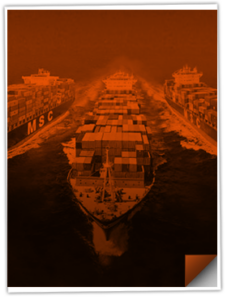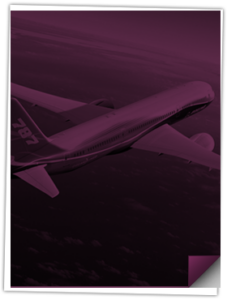Featured Headlines:
WTO Makes Key Ruling for Turkey
FDA Takes Small Steps to Improve Infant Formula Shortages
WTO Makes Key Ruling for Turkey
- The World Trade Organization (WTO) recently announced its support of Turkey’s complaints against the European Union’s (EU) measures used to curtail imports of Turkish steel; a WTO panel declared that the EU’s actions opposed international trade rules and failed to show that the steel imports threatened their industries in anyway.
- The EU claimed it put the measures into place back in 2018 to safeguard its industries from steel imported from Turkey.
- Initially, the measures were set to last for 3 years with quota limits increasing 5% annually; however, Turkey complained that the EU had both failed to meet the 5% increase threshold and unfairly extended the safeguards through 2024.
- At this time, the EU has yet to challenge the WTO’s decision, marking a huge victory for Turkey and other countries that export to the EU.
FDA Takes Small Steps to Improve Infant Formula Shortages
- As many American families struggle to find infant formula on store shelves, the Commissioner of the Food and Drug Administration (FDA) has assured the public that it is working diligently to make sure there is enough product to meet consumer demand.
- The shortages are largely a result of an FDA warning issued on February 17th that advised consumers not to use infant formula products made by Abbott Nutrition at its Sturgis, Michigan facility.
- Following this announcement, several other formula manufacturers began working in overtime to maximize their production to make up for the shortages; manufacturers are also prioritizing product lines that are needed the most.
Barking for Truck Parking
- At a recent American Trucking Association (ATA) event, the Federal Motor Carrier Safety Administration (FMCSA) named truck parking, driver shortages, better use of technology, and overall driver safety as their primary points of focus this year.
- The FMCSA spokeswoman mentioned that her administration was already working with the Federal Highway Administration to identify possible funding pathways for more parking. At the end of the day, parking scarcity is a safety and productivity concern for the industry and the American public.
- Indiana and Kentucky are in the vanguard of states using technology to identify free parking spaces in real-time; this initiative was largely funded by the FMCSA grants.
- The Biden administration also launched a 90-day challenge to offer fully paid training for new drivers to secure a commercial driver license. Impressively, more than 100 trucking forms have accepted that challenge.
- The ATA itself has gotten good reviews for its recent work to improve apprenticeship programs and on-the-job training.
- Trucking-related crashes and deaths are on the rise, and the FMCSA is looking at the implementation of electric speed-limiting devices for heavier trucks.
Domestic Pit Stop Back Drop
- It is estimated that driver detention (waiting) time costs US truckers over $1 billion a year.
- Chicago faces another chassis crisis as importers hold onto loaded containers for too long. The knock-on consequences include delayed train loading and off-loading and the need to ground containers when chassis are not present, which quickly becomes a no wheels within a no wheels situation!
- Fortunately for shippers, Dallas, Memphis, Kansas City, and St. Louis rail ramps are all operating with much greater overall fluidity and access to equipment, after suffering from chronic congestion and chassis shortages for much of 2021.
- After two straight years of year-over-year increases, Cass announced that the total number of trucking shipments shrunk by almost 1% in December 2021 vs. December 2020.
- While nationwide access to drayage has improved slightly, chronic availability and supply problems continue to plague New York, Norfolk, Miami, the Gulf Coast, Los Angeles, Long Beach, Seattle, and Tacoma.
Global Food for Thought
- The War in Ukraine is disrupting planting seasons, while destroying crops and agricultural fields themselves. As a result, Ukrainian exports of vegetable oil, fertilizer, and grains are virtually at what amounts to a stand-still.
- With global supply in question, countries are beginning to restrict their agricultural exports to promote food security at home. Recently, India banned exports of wheat, while Indonesia prohibited exports of palm oil.
- Export controls will only put upward pressure on food and commodity prices—even wealthy countries in the European Union (EU) worry about basic food affordability in the face of scarcity!
- Facing the very real danger of a global food crisis, officials from the EU and US will meet in Paris on Monday to discuss methods of cooperation and collaboration to best free existing food supply chains, while working out a ground transport plan for Ukrainian exports.
Global Shipping Grab Bag
- In somewhat shocking news for retailers, Wal-Mart’s profits declined by 25% in Q1 2022 compared to Q1 2021. Despite expanding sales, the retailer faced cost headwinds created by rising labor expenses, quickly increasing inventories, and overall supply chain costs. Put in simple terms, Wal-Mart bought too much, too fast in an effort to circumvent supply chain bottlenecks.
- In 2021, US wine exports by value grew by 10.6%—the largest single-year jump since 2013. The segment is now worth $1.44 billion.
- CMA CGM and Air France-KLM have announced a 10-year strategic alliance for air cargo development.
- Asia-to-Europe ocean freight transits have hit new record averages; delays by alliance have reached 17-32 days, which more than doubles typical transit times for many critical port pairs.
- The global minimum wage for seafarers is set to increase on July 1, 2022, with future increases already established for the next three years.
- Cosco Shipping Ports, a subsidiary of Cosco Shipping Lines, reported plans to invest approximately $3 billion to establish a new container terminal in Peru, just north of Lima.
- India plans to connect 27 additional ports by new rail construction and improvement to existing infrastructure in a project valued above $13 billion; this will increase India’s rail interconnectivity to 56 ports (out of an astounding 226 recognized by India’s ministry of shipping and ports)!
US Port-Pourri
- The 10 largest US ports witnessed a 7.1% year-on-year import increase in April; this eclipsed March’s 3.5% gain, but trailed February’s 13.7% uptick.
- Despite the Shanghai lockdowns, April’s 2.2M import TEUs was the third-highest volume ever. April’s impressive volumes trailed the all-time busiest month in US history—March 2022—by a mere 1.8%.
- Interestingly, April was also the eleventh straight month in which East Coast/Gulf ports outperformed the West Coast in relative growth terms. In April, the EC/Gulf ports grew an astounding 22.1 percentage points more than WC ports!
- The biggest April import market share increases occurred in Charleston (up 34%), Houston (up 26.5%), and New York (up 22.4%); the biggest reduction was Seattle’s decrease of 20.1%
- Despite a 30% reduction in exports from Shanghai, total US imports from China slipped only 2.5% in April, indicating a broad redirection of cargo to China’s many other modern ports.
- While some volume has been redirected to EC/Gulf ports in the US, the port of Long Beach recorded its busiest April on record, with Los Angeles announcing the second busiest April in the history of containerization.



